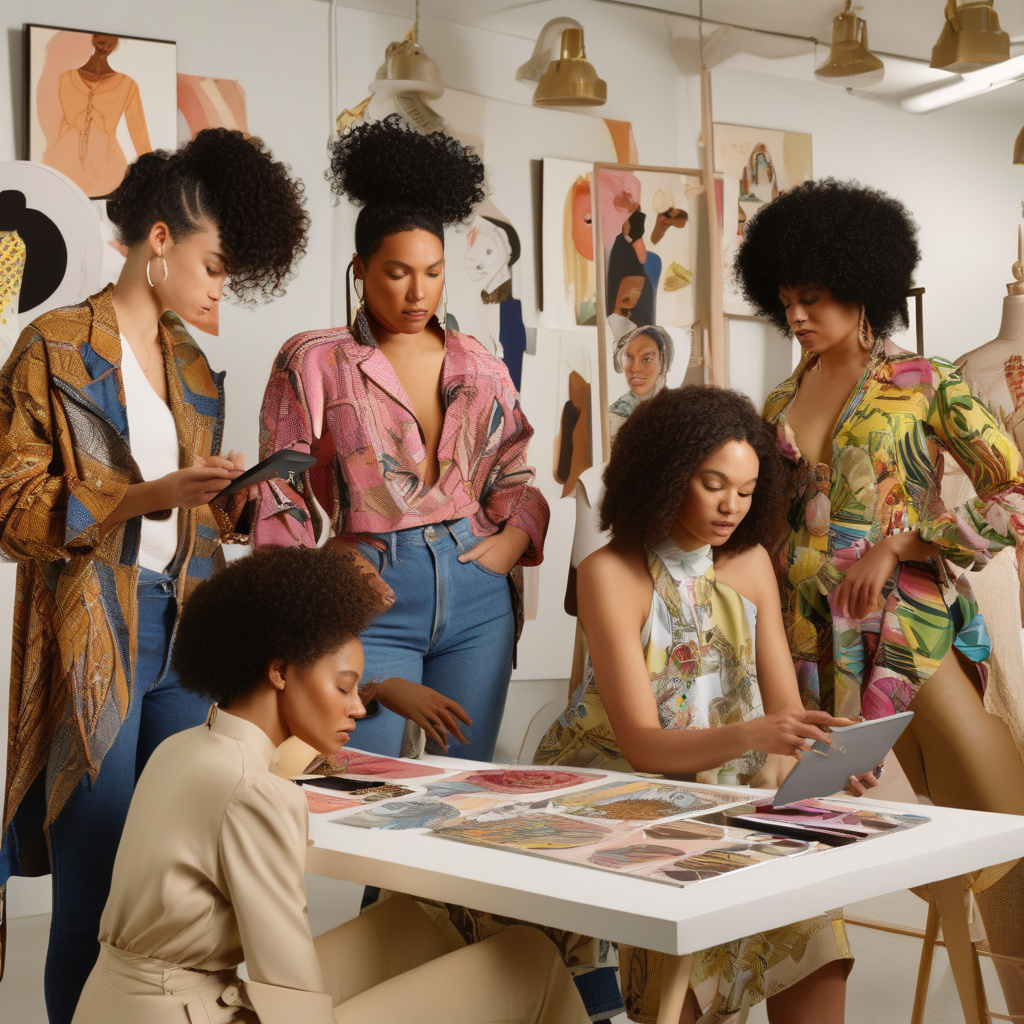How Raisefashion Helps BIPOC-Owned Brands Navigate Fashion’s New Realities
The fashion industry is experiencing a seismic shift, with new realities and consumer demands reshaping the landscape. For BIPOC-owned brands, these changes come with unique challenges and opportunities. Raisefashion, a pioneering platform, is at the forefront of this transformation, offering invaluable support to BIPOC designers. Through its third annual masterclass, Raisefashion is helping these designers balance their creative vision with the pressing needs of a dynamic market.
The masterclass serves as an incubator for innovation and collaboration among BIPOC designers who are committed to their communities and the environment. This year, three standout designers shared insights into how they are scaling their businesses while staying true to their missions.
First, let’s consider the case of designer Nia Thomas, who emphasizes community engagement as a core tenet of her brand. Nia focuses on creating sustainable fashion that not only caters to her customers but also uplifts the local community. “Our designs are inspired by the stories of the people we serve,” she explains. Nia leverages social media to create a dialogue with her audience, allowing her to understand their desires and concerns better. This feedback loop informs her collections and ensures that her brand resonates with her target market.
Nia’s approach highlights a broader trend in the fashion industry, where consumers increasingly prioritize brands that align with their values. According to a recent study by McKinsey, 67% of consumers consider sustainability when making a purchase. This shift pushes BIPOC designers like Nia to be more transparent and accountable in their practices, which ultimately strengthens their brand loyalty.
Next, we turn to designer Malik Johnson, who has been instrumental in developing a brand that reflects the cultural heritage of his community. Malik focuses on heritage-inspired designs that celebrate the richness of Black culture. He notes that while it is essential to maintain a connection to his roots, he must also be adaptable to consumer preferences. “Fashion is ever-changing, and we must evolve while honoring our history,” Malik states.
To navigate the complexities of modern retail, Malik has adopted a hybrid business model that combines both e-commerce and brick-and-mortar strategies. “Having an online presence allows us to reach a broader audience, but our physical store serves as a community hub,” he explains. This dual approach enables Malik to engage with customers on multiple levels, fostering a sense of belonging and loyalty.
In addition to community engagement and cultural heritage, designer Sara Patel emphasizes the importance of collaboration. Sara, who specializes in inclusive sizing, believes that partnerships can amplify a brand’s reach and impact. “When we collaborate with other BIPOC brands, we create a powerful synergy that benefits everyone involved,” she shares. Sara’s collaborations have included co-designing limited-edition pieces with fellow designers, which not only expands her customer base but also strengthens the BIPOC fashion community as a whole.
Through Raisefashion’s masterclass, Sara and her peers have learned to navigate the complexities of collaborations while maintaining their brand identities. The platform provides mentorship and resources that empower BIPOC designers to take calculated risks and explore new opportunities. According to a report by the Council of Fashion Designers of America (CFDA), collaboration is a key driver for success in today’s market, particularly for emerging brands.
As the fashion industry continues to evolve, BIPOC designers face both challenges and opportunities. Raisefashion plays a crucial role in equipping these designers with the tools and knowledge they need to succeed. By fostering community engagement, honoring cultural heritage, and encouraging collaboration, Raisefashion is creating a supportive ecosystem for BIPOC-owned brands to thrive.
In conclusion, the fashion landscape is changing rapidly, and BIPOC designers are leading the charge toward a more inclusive and sustainable industry. Through platforms like Raisefashion, these designers are not only navigating the new realities of fashion but are also setting the stage for future generations. The commitment to community, culture, and collaboration is not just a business strategy; it’s a movement that is reshaping the industry for the better.
#BIPOCfashion, #sustainablefashion, #communityengagement, #Raisefashion, #inclusivefashion
